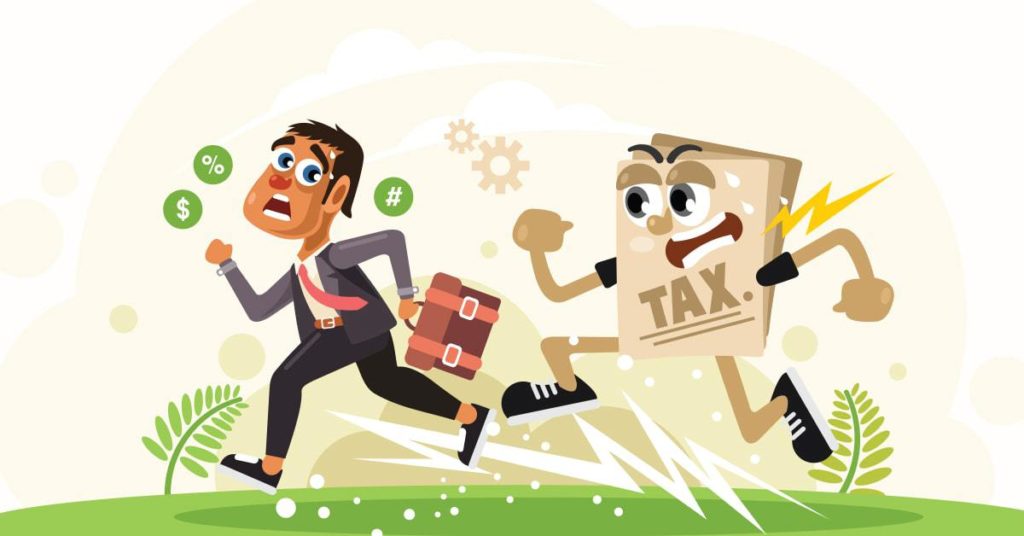The UK has so many complicated regulations right now. Here are five small businesses’ main concerns about paying proper amounts towards their government and ensuring we’re all on the same page when dealing directly with HMRC.
Income tax
You pay tax on the profit of your business. If you don’t have any other income, such as salary from a job or dividends received by way of being part-owner in an umbrella company then once it goes over personal allowance which is £12 580 if under 75 years old, you’ll start paying income tax on your business’s profit (2022/2023 will be same rates).
If running Limited Company then there are two possibilities:
– either pay employees’ wages into UK system – this means they must fill out W1 form;
– owe Corporation Tax payment quarterly through self-assessment registration process at Companies House – or use their profits toward covering these costs instead.
In the UK, if you earn over £12 570 per month then tax is due on all earnings. This kicks in for individuals under 75 and without any other outside sources of earnings. If one has another job as well then they would be subject to pay a little more depending upon how much each pays out at home despite being part-time employed by themselves or others companies alike.
If you are paying income tax on your salary, the government will deduct it from what is coming in under PAYE (Pay As You Earn) scheme. This isn’t a separate tax but rather how they collect all those pesky earnings which would otherwise go untaxed if people weren’t required by law to submit returns every year with their employers or themselves.
National Insurance
National Insurance is often referred to as a tax in all but name. Sole traders pay two kinds of National Insurance. If you’re a sole trader, your flat weekly rate will be Class 2 NI unless it falls under the Small Profits Threshold for earners with profits up until £6,725 per year which was last increased from its previous level back at 8%. This means that if an individual’s annual revenue doesn’t exceed this amount then they may choose not have any contributions made onto their payrolls related taxable income over what would otherwise happen had these person been employing someone else full-time while also paying them salary plus benefits package worth around.
You will also pay Class 4 NI if your business’s profits are between £9,880 and £50,270 and at 3.25 per cent on any further profits over £50,270.
From April 2022 to 2023, the national insurance rate is set at 13.25%. For wages between £988 and 50270 there will be 3% contributions while any amount over that triggers a Health & Social Care levy which brings back into normal rates after this years’ tax year ends.
Corporation tax
Limited companies are subject to taxation on their profits. There is no allowance for Limited Companies, so once any profit has been made by the company unless it’s previously paid losses, they will be taxed at 19% or 25%. This increase in Corporation Tax applies only if your annual revenue exceeds £250k and falls due 9 months after end date. Sole traders do not pay corporation tax.
VAT
No matter what type of business you have – sole trader, partnership or LLP; if your company makes VATable sales over £85k a year then they will need to register for VAT.
VATable sales are a type of business that deal exclusively in goods or services which would have had Value-Added Tax (VAT) charged on them if made by an official registered company. The pandemic has skewed this somewhat, but it’s still possible to find some great deals.
The standard VAT rate in the UK is 12.5% for hospitality, holiday accommodation and attractions while other businesses have a 20%. There’s also an exception with food items which are only taxed at 5%, though there are some additional rates such as 0 percent applied on certain goods like children’s clothes or newspapers if they can’t be consumed locally – this means you could save up to £3k per year just by shopping differently.
Business rates
The rates your business pays for its property can be a big expense. If you operate from an office or retail space, then there’s the chance that these costs will apply and perhaps even beans in addition to any other taxes like VAT.
The tax burden on businesses has been heavy in recent years, with many Reliefs and Exemptions available. For example some premises are automatically exempt from paying business rates such as farm buildings while others may be entitled to a reduction through relief claims.
This is great news for those who run their businesses from home, as they won’t have to pay business rates and council tax.
Here are some exceptions:
- Employing staff who also work at your home
- Selling goods/services from your home to visiting customers
- You have adapted your home to work there
- Your property is part business and part domestic.

